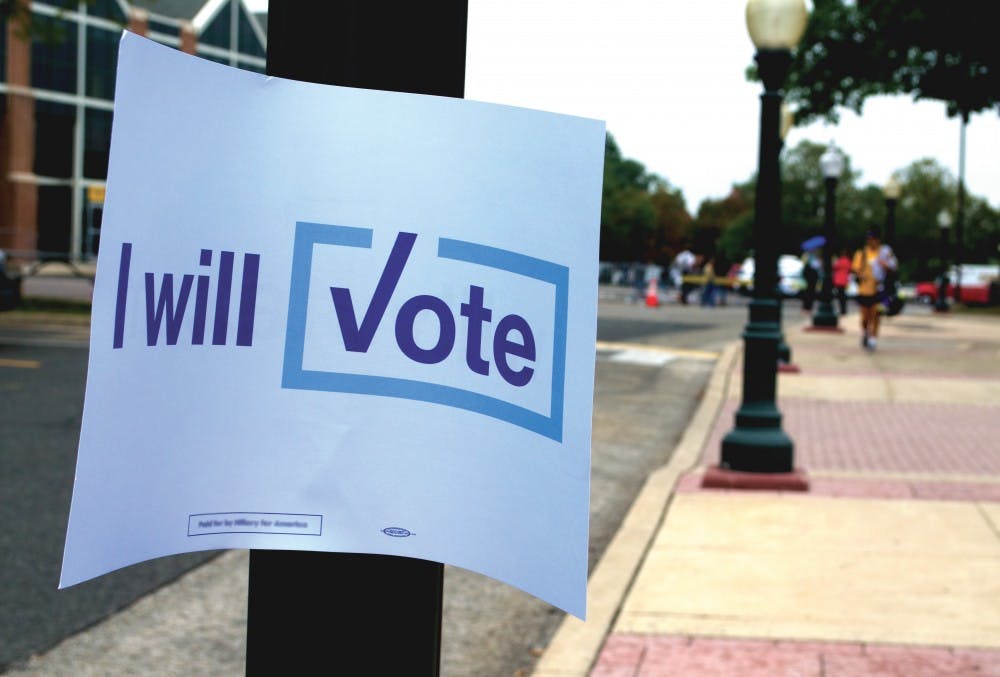The election of Democrat Larry Krasner as Philadelphia's new district attorney was a significant one for the city. Penn students and faculty have differing views on what Krasner's leadership might bring.
Krasner, a civil rights attorney with no prior experience as a prosecutor, was elected to the city's chief law enforcement office on a campaign focused on progressive criminal justice reform.
Political science professor Marc Meredith said Krasner is a distinct choice for district attorney due to his past legal experience and unique and strong opinions on various policy issues.
"What differentiates Krasner from many people that came before him is that even before he came into office, there was already a bit of tension between what the district attorney says he wants and what the police department says they want," Meredith said.
At the end of June, the Philadelphia Fraternal Order of Police's board voted unanimously to endorse Republican Beth Grossman, a former Democrat and assistant district attorney, in the race.

Larry Krasner
Some Penn students have expressed similar concerns about Krasner as those of the FOP board. Co-Director of Penn College Republicans Editorial Board and College and Wharton sophomore Michael Moroz said Krasner's "anti-police message is troubling," noting that his supporters chanted "no good cops in a racist system," on the night of his primary victory.
Moroz also said Krasner's election made him concerned for the safety of the city, noting Krasner's resistance to stop and frisk policies, to the use of the death penalty, and to cooperation with immigration authorities to deport undocumented immigrants.
RELATED:
Civil rights attorney Larry Krasner will be Philadelphia's next district attorney
Former Philadelphia District Attorney Seth Williams is sentenced to five years in prison
"I think all of that creates a demonstrably less safe city. Nothing [Grossman] ever said would make me nervous about the future of the city, whereas everything about Krasner has made me nervous for the city," he said.
Moroz added that he thinks Krasner's policies may contribute to "the Ferguson Effect," the theory that today's heightened scrutiny of police has caused officers to be more reluctant to engage in risky situations, thereby possibly increasing overall crime rates.
However, there are also student groups on campus that have indicated support for Krasner months ago. On April 15, Penn Democrats voted to back Krasner as a candidate in the Democratic primary and in the subsequent elections.
College junior and Penn Democrats President Rachel Pomerantz said her group promoted voter registration and student involvement in the local election, adding that she was very excited by his win.
"He is very progressive on issues of criminal justice reform," Pomerantz said. "Specifically, he has a lot of concrete policy ideas to end mass incarceration, from ending cash bail to rethinking sentencing of nonviolent drug offenders."
While Philadelphia's crime rate has fallen in recent years, the city has the highest rate of incarceration per capita out of the 10 largest cities in the nation, according to The Philadelphia Inquirer.
Pomerantz also said Krasner will likely "be very aggressive in prosecuting perpetrators of sexual assault," which would heavily benefit students.
J. Jondhi Harrell is the executive director of The Center for Returning Citizens, which provides resources for at-risk children, children of incarcerated parents, and formerly incarcerated individuals. In September, he joined Krasner at an event co-hosted by Beyond Arrests: Re-Thinking Systematic Oppression, Penn Dems, and the Penn chapter of the NAACP.
"What happened on Nov. 7 was a seismic change for the city of Philadelphia. We have long been known as a city of incarceration," Harrell said in an interview.
He noted that Philadelphia has the highest number of juveniles serving life sentences out of any American city, adding that Krasner could change Philadelphia's "culture of prosecution."
BARS Publication Team member and College sophomore Naeche Vincent said she is interested in interning for the district attorney office once Krasner establishes himself. As a pre-law student, Vincent said that Krasner's platform, particularly his attitude towards mass incarceration, could make her feel more comfortable working for the district attorney's office in the future.
However, Meredith said Krasner's efficacy as district attorney will depend on the support of "subordinates" in the district attorney's office as well as local judges and leaders within the FOP.
"It's hard to know how successful he will be in implementing some of the reforms he wants to put into place; just because he is DA doesn't mean he is going to get a buy-in from everyone who works in the DA office," Meredith said. "I think we'll likely see things like less use of incarceration for minor crime, but how much so — we'll have to see what actually happens."



